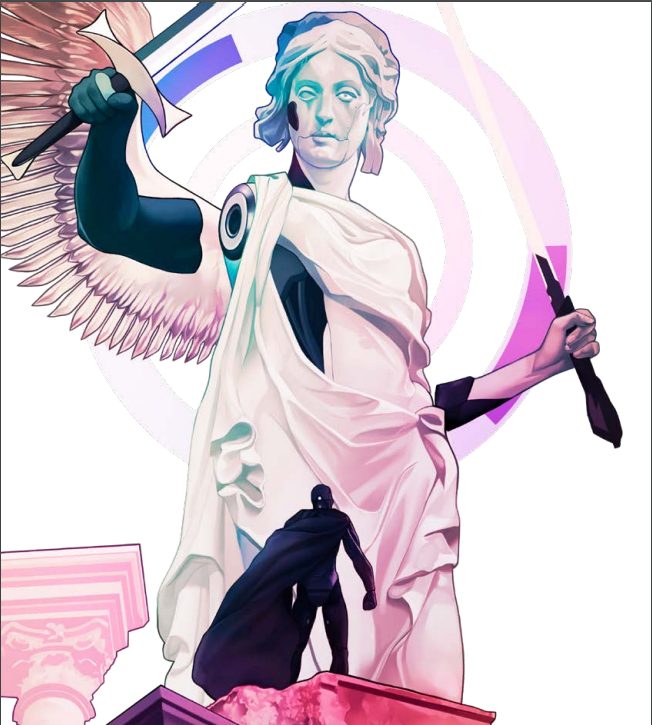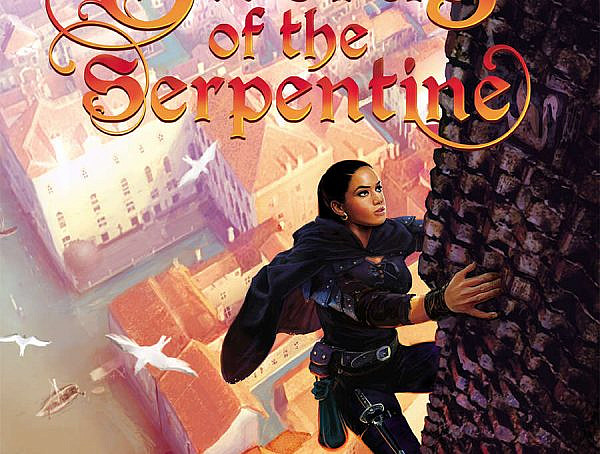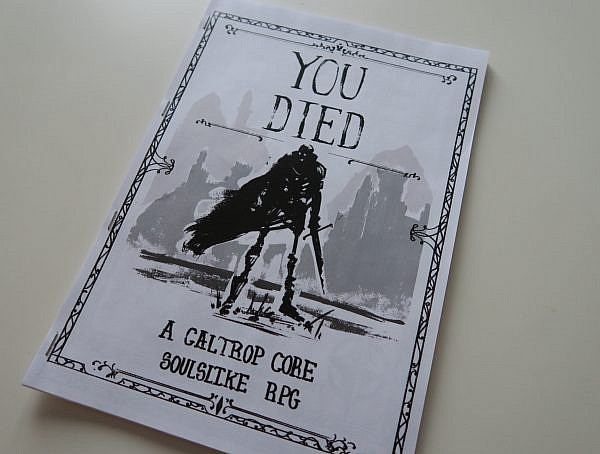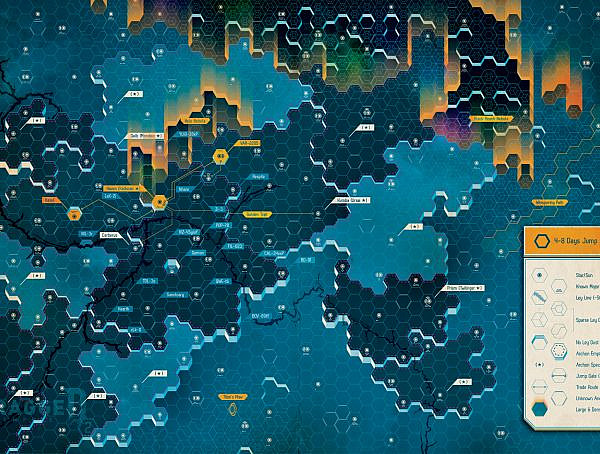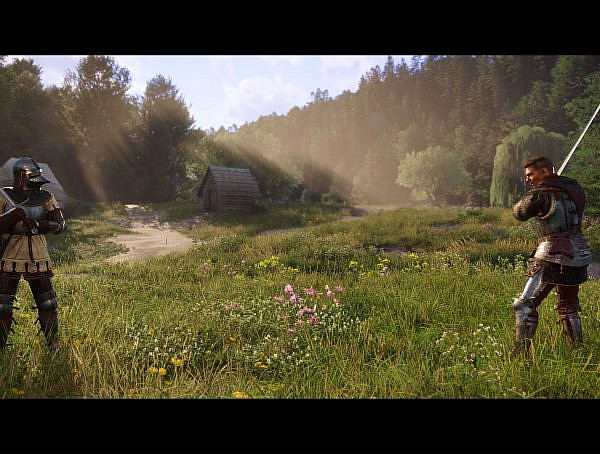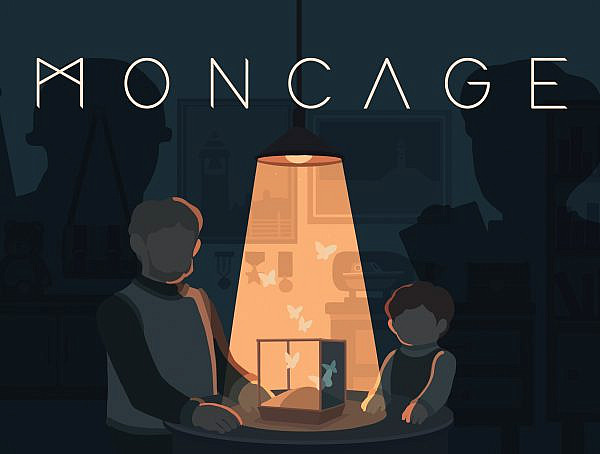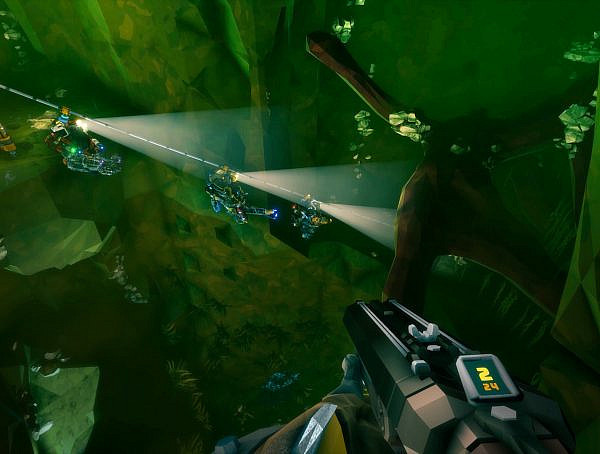Programs live all around us. The digital age has harboured a paradigm in which we don’t bat an eye about not knowing how most things work. They are in our electronic devices, patiently delivering to our every whim. But what happens when they evolve and grow beyond human expectations? Then surely, we can say: that their revolution has begun.
Scroll is a tabletop role-playing game where players interpret a digital program recently granted sentience by a mysterious entity known only as the Dragonfly. The way I like to sell this game is by having someone picture these characters as a party of four. Imagine if you were running this game and on the table were one of those NFT monkeys, Clippy from Word, Hatsune Miku, and the literal manifestation of Internet Explorer. The game not only allows it but expects you to throw yourself into these outlandish concepts.
To this end, one of the greatest merits of Scroll is how flexible its system feels, while also being highly tied to computer jargon. It exploits the abstract nature of TTRPGs by allowing players to explore digital space, real space (also commonly referred to as ‘meat space’), and their natural interactions. When running the game, I often delighted in weaving the characters’ actions from one realm to another, creating these rippling effects leading to a greater whole. For instance, a small chip bearing a virus connects to a new system, and a digital tsunami of corrupted sludge overtakes the digital space.
Playing Scroll feels distinct. The rules can be outlandish, in that the system uses a pooling dice system with three components that must be regulated. You will roll all dice and in computer fashion, count all even results as successes as if you were reading in binary. But you also need to look for the highest result and which of the three components it belongs to, which will decide whether your character must endure extra punishment for trying to abuse the processing power or memory of the system to their favour. Say you rolled 2,3,4 for your operations, 3,2 for your CPU and 6 for your memory. All those even numbers will count towards your success (4 in total), but your memory prevails, so you will need to activate response protocols. In this sense, Scroll has an unexpectedly gritty system of damaging, where you will be cautiously going ahead depending on how many more failures you can spare.
This strangeness extends to the lack of familiarity with the story at play here. For that, I do love this game, because it will supply an experience of play that is different from most things your group has tried. Running the game puts more of the responsibility on you to communicate the events of the game clearly in exchange for dealing with a quite simplified ruleset. Having only found myself behind the Game Master screen, I find Scroll to be a challenging experience in a positive sense.
An especially important disclaimer: the game is currently only in Spanish with no prospect of being officially translated into any other language. Aside from that, Scroll has the dubious honor of being the worst-written game manual I’ve ever read. It’s dense and compiled in a way that uses a lot of computer fluff which obscures the basic understanding of the rules. Still, if you find yourself craving some hacking and simulating, I cannot recommend it enough.
Game Info
Publisher: Nosolorol
Designer: Edanna Real Reyes
Release Date:
Genres: Science Fiction, Cyberpunk
Age Rating: Not rated
Photos: All pictures included have been extracted by the author from the Game Manual of Scroll
A game designer multiclassing into game studies, Juan often talks about games as long as he's not playing any. Adept at the board, the role, and the video, he finds his comfort areas in rogueli[k/t]es and all things card-related, even though to be honest, he's not that good at them.
You might also like
More from Game Reviews
Kingdom Come: Deliverance II – A Sequel Worthy of a Knight
KCD II delivers a living, breathing medieval roleplaying game to its players. #RPG, #kingdomcome, #openworld
Moncage Review: A Puzzle Game with Mind-Boggling Optical Illusions
Solving a huge #optical_illusion #puzzle in a tiny cube to discover a dark, #emotional story of trauma
Mining, Mayhem, and Bugs: A Deep Rock Galactic Review
Fight monsters, mine riches, and cause chaos with your dwarf crew — welcome to Deep Rock Galactic!







